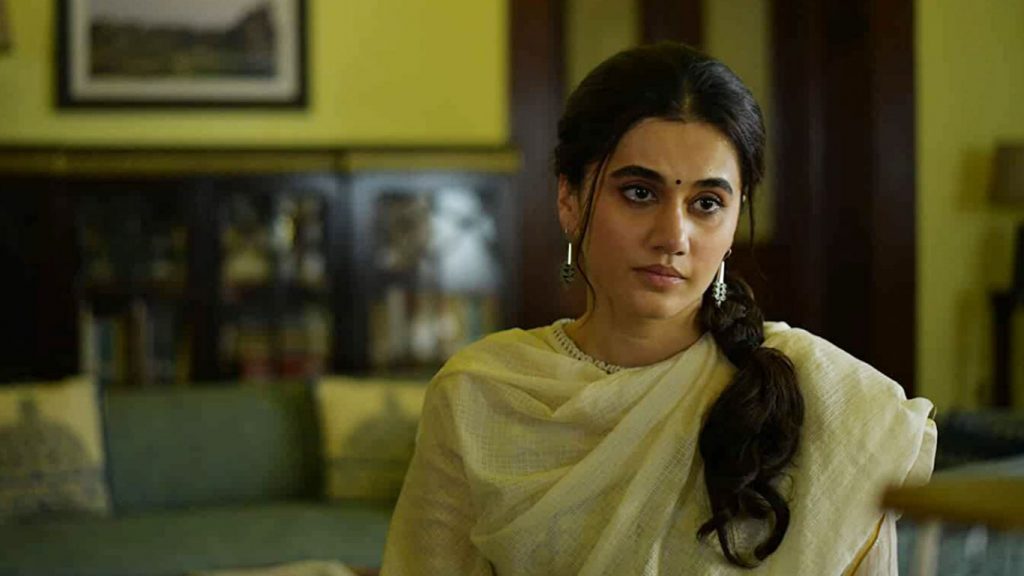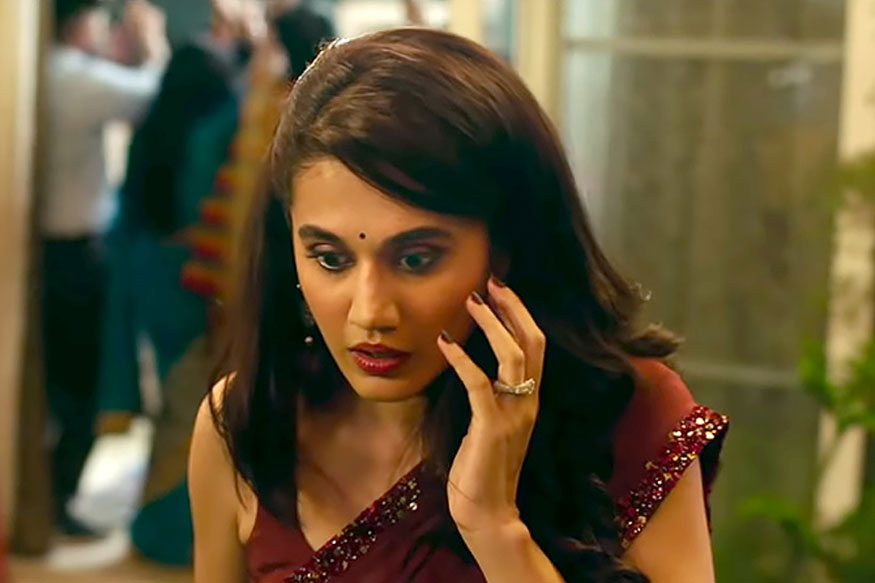Thappad revealed its central conceit in it’s trailer: a woman seeks retribution after being slapped by her husband in a party. What could have been a thin, stretched narrative was, thankfully, spun into a thoughtful, nuanced take on domestic bliss (and lack thereof) in deshi cultures. Writer-director Anubhav Sinha and Mrunmayee Lagoo Waikul turns the story into an exploration of how woman in these cultures are decided to conform and to live for ‘others’ happiness’.
Amrita/Amu (Taapsee Pannu) is happy playing the role of a housewife, waking up early before her husband, Vikram, everyday, taking her mother-in-law’s blood sugar reading and preparing tea for Vikram as he wakes up and grudgingly gets ready. It’s not only Vikram, but Amu’s mother-in-law (and we later come to learn, her own mother) take Amu’s duty-bound nature for granted. However, when Vikram looses his temper after losing out on a promotion to London and gets into an argument, he takes his anger out on Amu when she tries to pull him away and slaps her in front of all the guests. When a shellshocked Amu retreats to her room, her mother-in-law informs her to attend to the guests. “What will people think?” she reminds Amu.
As Amu grows distant from Vikram and tries to deal with what happened to her, we also see glimpses of two other women’s lives. One is Amu’s hired help who is almost regularly beaten by her husband and has become used to that being her normal. Another, Netra (Maya Sarao) is a powerful lawyer who gets patronage for her influential father-in-law and is later raped by her journalist husband. Both stories illuminate important ways how women are subjugated in ways that are ignored by the rest of society.
The film tries to understand it’s characters, even ones that other stories would probably vilify.
Amu’s mother (Ratna Pathak Shah) insists that Amu reconcile her differences with Vikram, because taking care of one’s home is always more important than a woman’s own happiness or dreams. Vikram is driven, but also petulant, refusing to apologize until the very end.

Taapsee Pannu gives a measured, restrained performance, portraying Amu’s hesitation and later, her growing clarity well. She expresses a range of emotions, bringing to life the turmoil happening inside her. Kumud Mishra, who portrays Amu’s supportive father, shows why for many women, their fathers are their heroes.
The film does stumble slightly in some places. It redeems some characters in an effort to deliver a happy ending, and the storyline involving Netra is sometimes too distant from the main narrative. However, it’s an important film, especially in the wake of toxic films like Kabir Singh, and it strikes the right nerves among its audience. It shows how problematic patriarchal narratives take root in society, and how we take these mentalities as being the norm.






















